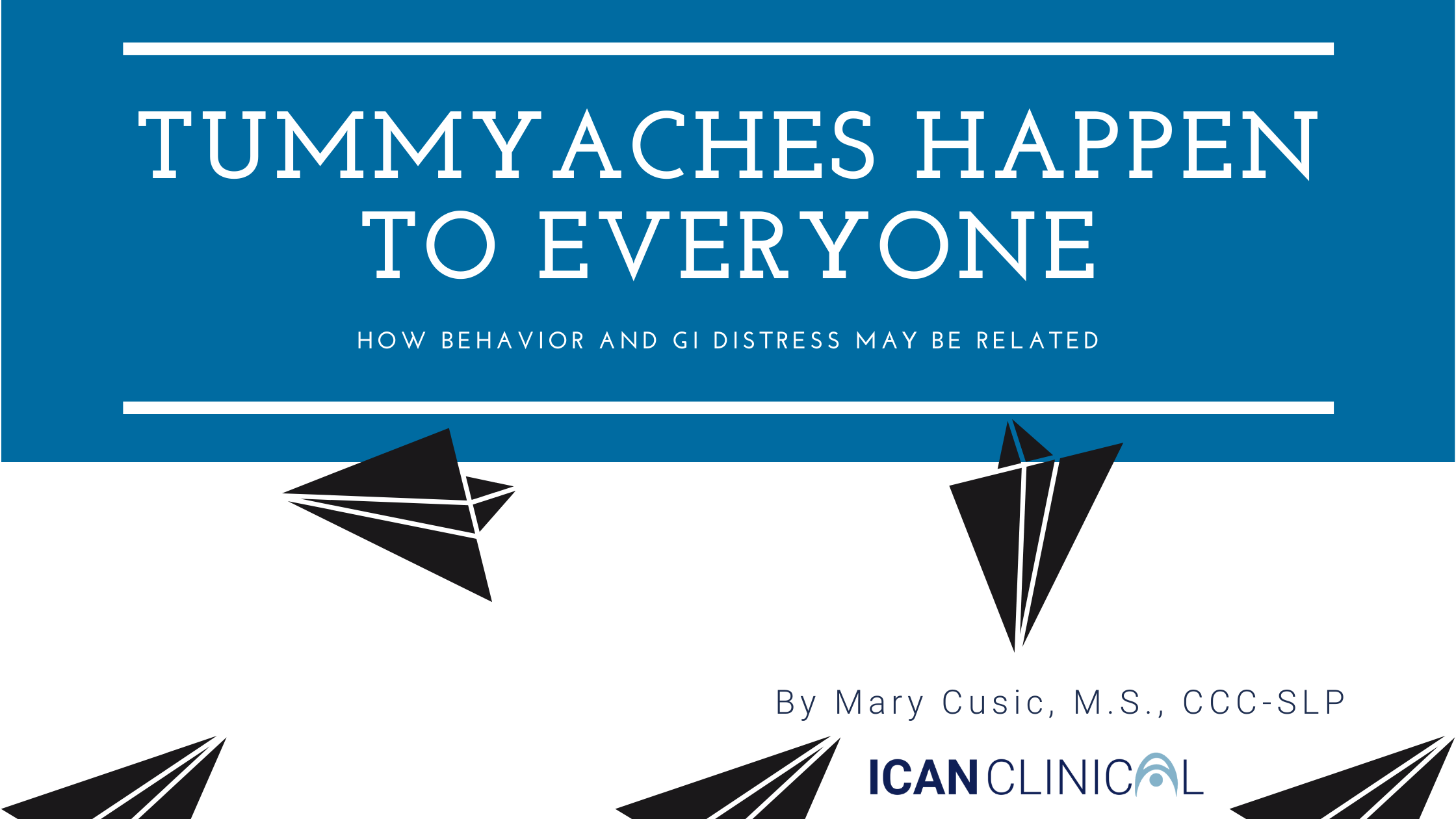
GI problems happen to all of us, including kiddos with autism. Keep in mind that talking about GI symptoms and potty humor might start the same way, so the next time you hear “In the bathroom…”, it could be time to let them finish that sentence. Just not at the dinner table- ew.
This 2010 report results from a panel discussion among experts in the following areas: child psychiatry, developmental pediatrics, epidemiology, medical genetics, immunology, nursing, pediatric allergy, pediatric gastroenterology, pediatric pain, pediatric neurology, pediatric nutrition, and psychology. They reviewed studies and came to some conclusions.
There were a couple of points that really caught my attention. Gastrointestinal (GI) disorders or discomfort might show up in unusual ways like sleep disturbances or increased problem behavior. Being uncomfortable is a challenge for adults who understand what is going on, can manage their symptoms, and, if needed, change their diet. We (hopefully) show ourselves some kindness and take it easy. If they lack body awareness, a kiddo with ASD can't do that.
Another conclusion that struck me as an SLP is that lack of communication can really impact a kiddo's ability to get help or even alert others that there is a problem. GI symptoms aren't something that we talk about in social conversations. That means that kiddos don't have a lot of models about how to talk about it. They won’t recognize an appropriate way to report a problem. Even in this post, I’m avoiding using specific language because it makes me uncomfortable.
- But sometimes we have to get uncomfortable. Awkward conversations need to happen. We shouldn't avoid important topics. Physical health, mental health, sexual development, and personal safety are topics that kids benefit from increased understanding and open communication. Some kiddos may say "something's wrong" or "ouch" and point to their bellies. Others will be able to use words like cramp, diarrhea, constipation, gassy, nausea to describe what is happening with their bodies. It’s not the most glamorous part of parenting, but you can take a deep breath and make it happen.
Hurray! We made it through an uncomfortable moment. See- it wasn’t so bad. It will get easier.
GI problems happen to all of us, including kiddos with autism. Keep in mind that talking about GI symptoms and potty humor might start the same way, so the next time you hear “In the bathroom…”, it could be time to let them finish that sentence. Just not at the dinner table- ew.
Mary can be reached at CORT@i-can.center.